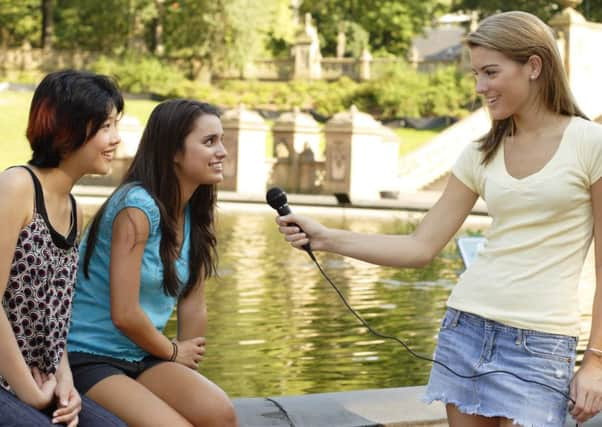Gary Smith: Battle against fake news enters the classroom


Latterly, however, any discussions over fakery are almost certain to be around the growing emergence of something mentioned more and more by politicians and others in public life; namely the increasingly hot topic of fake news.
In reality, fake news has always been with us. Propaganda, disinformation, exaggeration, elision or suppression of facts, the list goes on and on. But now we have a name to cover all of it.
Advertisement
Hide AdThe distribution of news, real and fake, has accelerated with the times; the traditional media – newspapers, television, radio – have been engulfed by new forms, chief among them social media. Platforms like Facebook, Twitter, Snapchat and Instagram carry information directly to countless millions every day.
But this information is frequently, perhaps mostly, unmediated – there is no-one checking that it is true, or fair, or even legal.
Fake news can be many things. Sometimes it can be deliberate acts of forgery, presenting as fact, as news, something that has not happened at all.
As commentator Danny Finkelstein neatly encapsulated recently: “The motive to fabricate such news varies. It can be the work of foreign powers hoping to destabilise liberal democracies – but is more likely just to be someone trying to make advertising revenue out of the traffic or hoping to advance a cause. And some people, of course, will do it just because they enjoy making mischief.”
Here in Scotland, media debate has always been part and parcel of public and political life – and the BBC is a very real part of that. In recent years, media coverage of the political debate has been scrutinised more than ever before, including output from the BBC. Charges of bias were laid at our door, charges I strongly believe to be unwarranted and unfair.
Don’t get me wrong, when you produce as much output as the BBC does every day, there will be times when we make mistakes.
Advertisement
Hide AdBut I genuinely believe that when that’s been pointed out to us, we correct it as quickly as we can. And of course, if complainants feel they have not been listened to, they are entitled to take the matter further and ultimately have it assessed independently by Ofcom.
A few months ago we decided to reinforce our Reality Check service to address the issues of trust and fake news. Reality Check – which is on radio, television and online – subjects the claims of politicians and others to rigorous factual checking and presents the results in an impartial and, we hope, unambiguous way.
Advertisement
Hide AdAnd now, I’m pleased to say, we’ve taken another step that will help young people throughout the UK to tell the difference between what is real and what is fake, what is true and what is false.
We’re offering as many as 1,000 schools mentoring in person, online, or at group events from BBC journalists.
All schools will have free access to online materials including classroom activities, video tutorials, and an interactive game developed by the Aardman studios where the player gets the chance to find out what it is like being a BBC journalist in the heart of a bustling newsroom.
It’s a training initiative that we’re really proud of, so it was a bit disappointing when the SNP MSP, Gordon MacDonald, seemed to make light of it by suggesting the BBC was in itself a vehicle for fake news. (The SNP later said this was not the party’s position.)
Exposing fake news is one of the most important challenges in journalism today: we take our responsibilities on that very seriously.
Next year we aim to launch a daily 60-minute news programme as part our new BBC Scotland channel. One of our aims in that 9pm programme is to introduce new faces and fresh ways of storytelling. It’s really important to us that would-be journalists of the future know how to spot fake news when they see it.
Advertisement
Hide AdTruth matters. And nothing is more important for our young audiences than teaching them how to find it.
Gary Smith is BBC Scotland Head of News and Current Affairs. For further information on the BBC Fake News project visit http://www.bbc.co.uk/mediacentre/latestnews/2017/fake-news